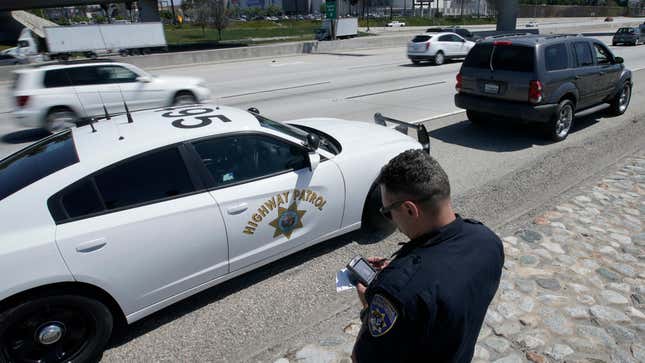
California’s Highway Patrol has been ignoring a 2017 court ruling. According to CalMatters, the agency has been conducting 30-day tows despite a 2017 ruling the practice unconstitutional. The agency is now being sued over the tows.
CHP had been able to tow vehicles driven by unlicensed drivers since 1995, but in 2017, it was ruled to be a violation of the 4th amendment. The issue started with a case, Brewster v. Beck. In that case, a vehicle was impounded after the LAPD discovered it was driven by an unlicensed driver. The LAPD refused to release the car to the licensed owner even after proof of ownership and an offer to pay all fees. From the Court of Appeals opinion:
Lamya Brewster loaned her vehicle to Yonnie Percy, her brother-in-law. Percy was stopped by Los Angeles Police Department (LAPD) officers, who learned that Percy’s driver’s license was suspended. The officers then seized the vehicle pursuant to California Vehicle Code section 14602.6(a)(1), which authorizes impounding a vehicle when the driver has a suspended license. Vehicles seized under this section must generally be held in impound for 30 days. Veh. Code. § 14602.6(a)(1).
Three days later, Brewster appeared at a hearing before the LAPD with proof that she was the registered owner of the vehicle and her valid California driver’s license. Brewster offered to pay all towing and storage fees that had accrued, but the LAPD refused to release the vehicle before the 30-day holding period had lapsed.
Ten days after the impound, the LAPD released the vehicle to Superior Auto, the lien holder and legal owner of the vehicle. Pursuant to LAPD policy, Superior Auto had to “ensure that no one, including the registered owner . . . will have access to the . . . vehicle during the remainder of the 30-day impoundment period.” Accordingly, Brewster ultimately was deprived of her vehicle for the full 30 days.
Despite this ruling, 30-day tows have continued, affecting drivers financially due to high fees. If vehicle owners can’t pay the fees, the cars are usually auctioned off. Now lawsuits have started to come after the practice.
The suits target the fact that the vehicles are still being held even after a licensed driver comes to release them. One driver who had a suit against the agency and had her car impounded after an unlicensed driver was behind the wheel said,
“I do understand the fact that they took away his driver’s license. He’s not supposed to be driving. I don’t understand why they had to take away the car for so long.”
Her case goes to trial next year. Meanwhile, CHP is still towing, with over 6,000 tows so far this year, all technically unconstitutional. It’ll be interesting to see how this recent batch of lawsuits affects the practice, which will hopefully come to an end.